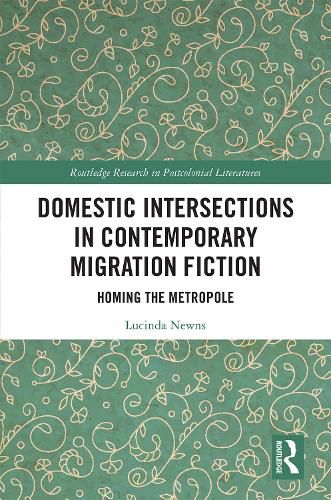Readings Newsletter
Become a Readings Member to make your shopping experience even easier.
Sign in or sign up for free!
You’re not far away from qualifying for FREE standard shipping within Australia
You’ve qualified for FREE standard shipping within Australia
The cart is loading…






Domestic Intersections in Contemporary Migration Fiction responds to the need for a more materialist perspective on migration by reorienting the focus on domesticity and the everyday practices of homemaking and away from a celebratory and aestheticized reading of displacement. Centering on Britain as the location of arrival, its readings of canonical and underexplored works of diasporic fiction emanating from Africa, South Asia and the Caribbean foreground the significance of discourses of domesticity in supporting as well as resisting colonialism, racism and xenophobia. Applying an intersectional feminist approach, this book challenges the tendency to view the private sphere as a static, apolitical and uncreative space. Rather, Newns argues, we should regard the domestic home as a key site for contesting the terms of belonging within larger spaces and collectivities, such as the city and the nation. Ultimately, by demonstrating the material importance of homely spaces for non-privileged migrants like women, refugees and LGBTQ+ people, Domestic Intersections problematizes the critical suspicion towards home and placement in feminist, postcolonial and queer theory.
$9.00 standard shipping within Australia
FREE standard shipping within Australia for orders over $100.00
Express & International shipping calculated at checkout
Domestic Intersections in Contemporary Migration Fiction responds to the need for a more materialist perspective on migration by reorienting the focus on domesticity and the everyday practices of homemaking and away from a celebratory and aestheticized reading of displacement. Centering on Britain as the location of arrival, its readings of canonical and underexplored works of diasporic fiction emanating from Africa, South Asia and the Caribbean foreground the significance of discourses of domesticity in supporting as well as resisting colonialism, racism and xenophobia. Applying an intersectional feminist approach, this book challenges the tendency to view the private sphere as a static, apolitical and uncreative space. Rather, Newns argues, we should regard the domestic home as a key site for contesting the terms of belonging within larger spaces and collectivities, such as the city and the nation. Ultimately, by demonstrating the material importance of homely spaces for non-privileged migrants like women, refugees and LGBTQ+ people, Domestic Intersections problematizes the critical suspicion towards home and placement in feminist, postcolonial and queer theory.